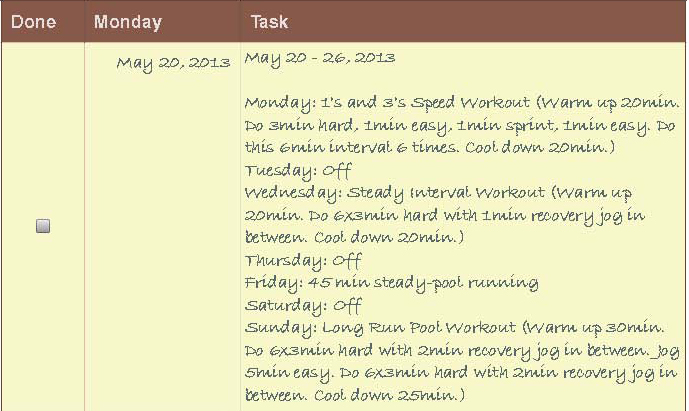How aqua jogging can help you recover faster and make you a better runner on land
By Lili Narvaez | Photo by Alexa Mazzarello
There’s really no other way to put it: injuries suck, big time. And it’s even worse when you’re training for an event you’re really excited (or nervous) about.
In summer 2013, I tore my lateral meniscus just when I had started training for a relay event later that year. For those who don’t have a medical degree like me, it’s basically a cartilage at the back of your knee and tearing it is one of the most common injuries you can get in sports.
It was April 2013 and there were four months left before the big event. The doctor told me I couldn’t run for two months. My life was shattered. It’s like I was told I wasn’t allowed to breathe.
Fortunately, there are ways to train without putting strain on the injury. I was lucky the tear was located where it could heal quickly and didn’t require surgery (and that I wasn’t a professional basketball player threatened with a career-ending injury). But since I wasn’t allowed to run, my coach recommended aqua jogging instead.
But aqua jogging isn’t anything to scoff at. It’s exhausting even after just 30 minutes. You won’t feel it for one obvious reason: no sweating. But once you’re out of the pool, you’ll feel it in your arms and legs
Aqua jogging is running underwater usually in a pool with a flotation device tied around your waist so you stay afloat and keep strain off the knee. Such exercises are similar to the ones you do on land—speed and interval training, recovery, easy and long runs. What’s great about aqua jogging is that it’s a good substitute for your daily run. Injured pro athletes use this technique to keep in shape while recovering.
Aqua jogging will help you a lot because you’re in the water and doing laps in the pool. You’ll be forced to move your arms and legs, focusing on your form and core. But because it doesn’t have the same impact as running and isn’t a one-is-to-one substitute to time spent on land, you will be in a pool for a very, very long time. Here is my sample training for a week:

If you add up all those minutes, you’ll log in at least two hours in the pool per day
But aqua jogging isn’t anything to scoff at. It’s exhausting even after just 30 minutes. You won’t feel it for one obvious reason: no sweating. But once you’re out of the pool, you’ll feel it in your arms and legs.
The fun part is answering questions from curious onlookers wondering what you’re doing. Try not to laugh when kids in the pool go, “Look, mom! Look at the lady. She’s walking on water like Jesus!” Finally, watch out for kids cannonballing into the pool and hardcore swimmers doing laps, creating big pool waves.
From the abovementioned scenarios, the one important thing to have is concentration. You’ll feel a little weird once you run on the road again. But you’ll feel lighter and see an improvement in your form and even your breathing. It will be a little scary to put weight on the injured part, but with an enhanced form thanks to aqua jogging, you’ll definitely run better and won’t even notice it.
Subscribe to our newsletter to receive the latest sports news and active lifestyle and fitness features you need